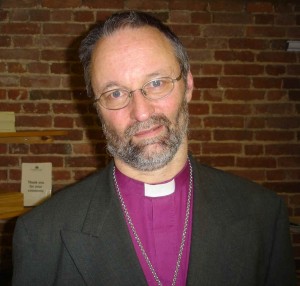Last month the most senior bishops of the Anglican church (leaders of national churches) gathered at Lambeth, London UK to decide imposition of discipline upon the Episcopal Church (USA) for its almost unilateral actions concerning the blessing of LGBTI marriages. I have been told, read often, that it was a miracle that all the episcopal leaders stayed seated around the same table – well, God bless them, what an achievement of Christian charity (nb tongue in cheek in case you can’t tell).
After sending the Episcopal Church to a temporary ecclesiastical alienation, the dear Archbishop of Canterbury had the naive foolhardiness to express his apology to LGBTI for the church’s immoral, uncharitable and bigoted prejudices….but as Bishop Alan Wilson writes
 “Lots of people are going around saying sorry, it’s great fun saying sorry – but what has actually changed? The LGBTI Anglicans say we can’t carry on as we have done – you can’t say ‘can we carry on having blacks-only beaches’ if you say you want to dismantle apartheid. Repentance is about change of mind and renewal. There is plenty of evidence of a change of mind, there is a genuine wanting to move on but if you want to move on you have to go somewhere different to where you are now.” He added: “In a lot of this I don’t think the Church has to change its doctrine of marriage – it just has to apply it to same-sex couples.”
“Lots of people are going around saying sorry, it’s great fun saying sorry – but what has actually changed? The LGBTI Anglicans say we can’t carry on as we have done – you can’t say ‘can we carry on having blacks-only beaches’ if you say you want to dismantle apartheid. Repentance is about change of mind and renewal. There is plenty of evidence of a change of mind, there is a genuine wanting to move on but if you want to move on you have to go somewhere different to where you are now.” He added: “In a lot of this I don’t think the Church has to change its doctrine of marriage – it just has to apply it to same-sex couples.”Bishop Alan Wilson, UK
The blessing of marriages, civil unions, gender transitions have for too long been seen as marks of approval, expressions of acceptance. I believe this understanding is based on a person-centered rather than God-centered dynamic. I believe we bless not because we as humans choose to bless but because God/The Divine presents us with the alluring and transformative opportunity to bless.
The God of whom I speak, whom I worship and whom I serve is the God who promises “when you walk through the waters and fire… I will be with you”, “wherever you go… I will be with you”, whose name is “Emmanuel… God is with us”. Once this understanding of God is grasped (i.e. once we grasp and are grasped by this theological truth) we see the dynamic of blessing as energized by God and not by us.
The prophet Ezekiel of ancient times was mysteriously transported from his home to the band of exiled Jews in foreign Babylon. When he arrived he did not chasten, berate, hesitate; in fact he kept silence. What Ezekiel did was to “sit with them for three days” and sometimes “three days” can be read as “for as long as it takes”.
The primary blessing we offer in God’s name is to be present with those who have long been alienated, condemned and ignored; the blessing of presence is substantial and primary… words will follow, they must.
Years ago, I was told of two friends/parishioners who had decided to divorce. I wanted to stress God’s presence with them through all the experiences of pain, guilt and stress. We gathered one day in church and used a liturgy of blessing for those going through divorce. So far in 37 years of parish ministry this has only happened once but I hope this not mirror the number of times divorcing people have felt God’s presence with them.
If you want to talk/write more with me, please do.
